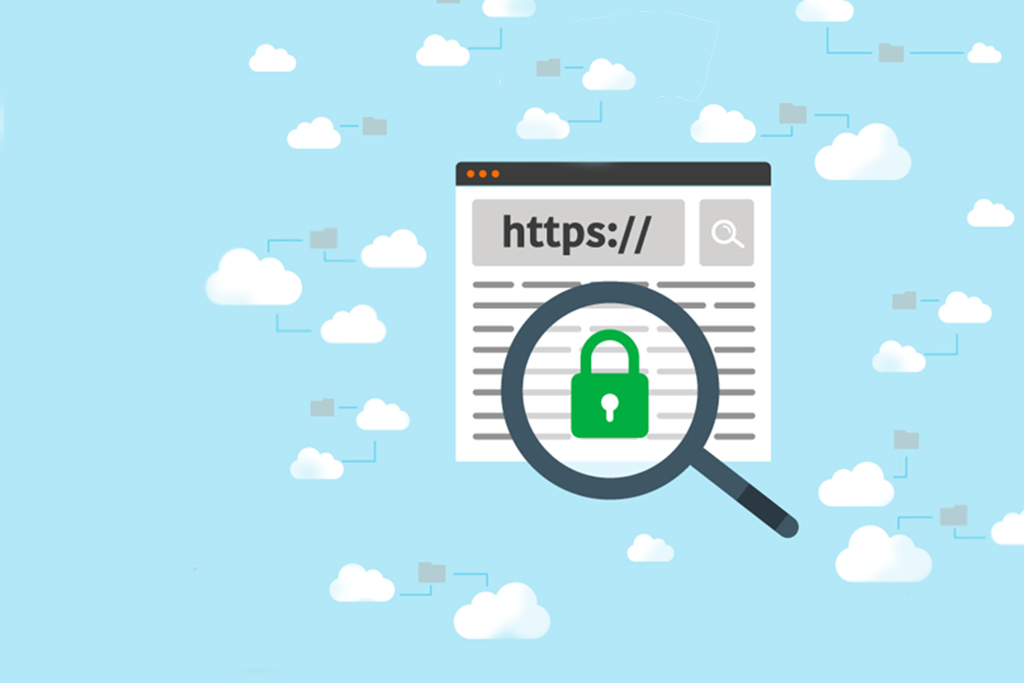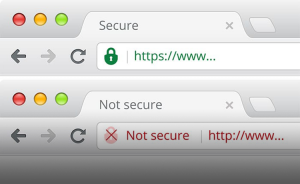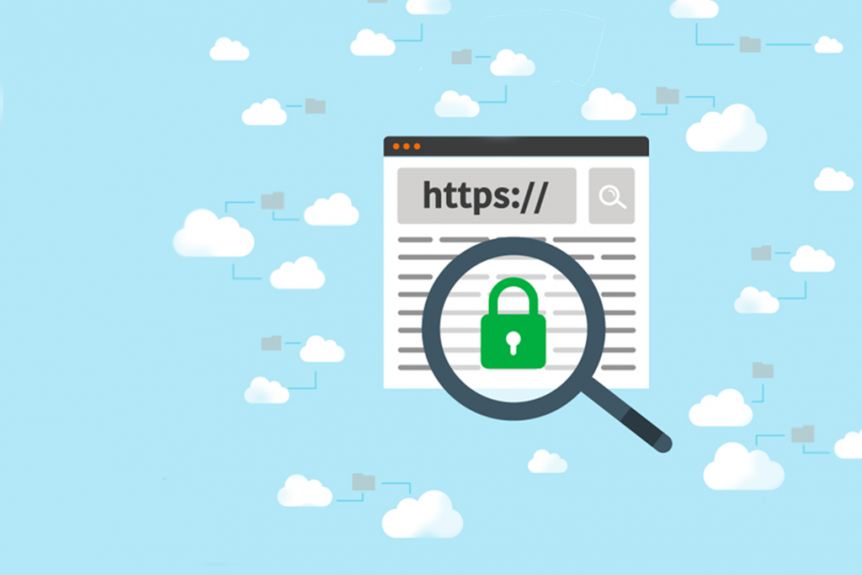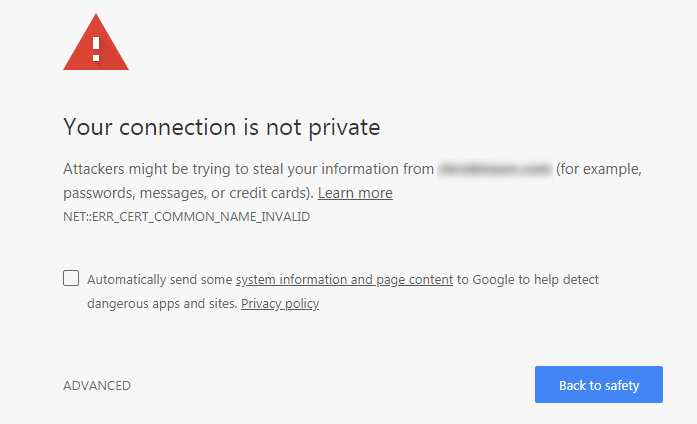 More than one in five websites visited on Google Chrome on any given day isn’t secure from hackers or cyber-criminals. So how are users supposed to know which websites are safe and which aren’t? SSL certification provides a clear way to distinguish a secure website from a dangerous one. Web browsers such as Google Chrome, Mozilla Firefox, and Apple Safari are all cracking down on websites without SSL certification to make their web browsers more secure for their users. This article will explain the basics of SSL certification, why it matters, and what steps you can take to be safer on the internet.
More than one in five websites visited on Google Chrome on any given day isn’t secure from hackers or cyber-criminals. So how are users supposed to know which websites are safe and which aren’t? SSL certification provides a clear way to distinguish a secure website from a dangerous one. Web browsers such as Google Chrome, Mozilla Firefox, and Apple Safari are all cracking down on websites without SSL certification to make their web browsers more secure for their users. This article will explain the basics of SSL certification, why it matters, and what steps you can take to be safer on the internet.
What is SSL Certification?
Let’s start the definition from SSL.com:
“SSL (Secure Sockets Layer) is the standard security technology for establishing an encrypted link between a web server and a browser. This link ensures that all data passed between the web server and browsers remain private and integral. SSL is an industry standard and is used by millions of websites in the protection of their online transactions with their customers.”
You may have also seen the certification being referred to as TLS. TLS, or Transport Layer Security, is the updated, more secure version of SSL.

An SSL certificate is a small data file that digitally binds a cryptographic key (e.g. domain name, server name, or hostname) to an organizational identity (i.e. company name). When it is installed on a web server, it activates the HTTPS protocol and allows secure connections from a web server to a browser. Usually denoted by a green lock and the word “Secure” in the upper left corner of a web browser, the certificate communicates to users that any data that they give to the website is encrypted and therefore secure. It builds a foundation of trust for any visitors on the website to disclose sensitive information to the website provider.
Why Does a Website Need an SSL Certification?
SSL certification is the industry standard for data encryption. Without encrypting data, sensitive information is displayed in plain text, allowing for cybercriminals to eavesdrop on, intercept, or steal information fairly easily. It allows for such information to be shared online without worry.
Since 2014, both Google Chrome and Mozilla Firefox (the two most widely used web browsers worldwide) have pushed for websites to be encrypted in order to improve user security and browsing experiences. In 2015, Google Chrome worked to downrank any website without SSL certification in its search engine priority. In 2017, both Chrome and Firefox browsers began to alert users to an insecure site with a “not secure” warning when a website doesn’t have the proper SSL certificate in order to deter users from entering any personal information onto the websites. This warning is detrimental to online businesses that require personal information from their customers such as emails, phone numbers, addresses, credit card information, etc. A recent Hubspot survey reported that when the small “Not secure” warning is present, over 85% of users will not continue browsing a site. Sites with no certification or invalid SSL certificates get a full-page warning in Chrome to deter users from visiting the site with the only clear next step being: “Back to safety”, deterring users from continued browsing.
As of February 2018, over 20% of websites don’t have an SSL certificate, which means 1 in 5 sites are still vulnerable to cyber criminals stealing sensitive information.
How SSL Affects SEO
SEO or search engine optimization, is the visibility of a website in the unpaid sections of a search engine’s results. The most relevant and popular websites are listed first. In Google’s search algorithm that ranks websites to determine the order of which they appear, websites without an SSL certificate are given lower priority over those with an SSL. This deters users from clicks, decreases website traffic which in turn, and hurts the website’s overall popularity. It is clear that Google favors encrypted websites over unencrypted ones. Because of this ranking system, the top search results are dominated by websites that have an SSL certificate. As of February 2018, over 20% of Chrome traffic is still missing an SSL certification. Because of this, websites are increasingly in need of an SSL certificate in order to remain relevant in search engine result pages.
What You Can Do to Be Secure:
For more information regarding and our services for encrypting your website’s connection with the web server, keeping your website and sensitive data of your customers safe, and being confident in your website’s security, reach out to Logic Solutions to help you install your SSL certificate. And while you’re there, consider browsing the rest of our site for more ways we can help you to strengthen your website’s security. SSL certification is essential for the security of your website, but there are many other necessary security measures that Logic Solutions can help you implement to improve your website.


